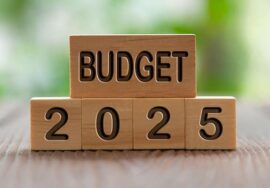Europe sizes up renewables to reduce reliance on Russian gas
[ad_1]
But while other countries might not be able to pivot so easily away from Russian imports, the fact the conversation has started is remarkable, said Rachel Kyte, dean of the Fletcher School of international affairs at Tufts University.
“This has been a moment where we’re now waiting to see how the EU wants to wean itself off Russian gas, which, two or three weeks ago, was an unimaginable conversation,” Kyte said.
On Thursday (Mar 3), the International Energy Agency released a 10-point plan for how the EU could reduce its reliance on Russian supplies.
The recommendations ranged from not signing any new gas supply contracts with Russia to, more crucially, investing in new wind and solar projects.
But if Moscow were to turn off the gas tap tomorrow – in retaliation for western economic sanctions – renewable energy sources are not yet in the position to pick up the slack, said Jonny Marshall, senior economist at British think-tank the Resolution Foundation.
“Not at the moment,” Marshall said. “Renewables generate when it’s windy or when it’s sunny, and the fact that we still rely on gas to make up that shortfall shows that renewables aren’t ready yet.
“But that doesn’t mean they won’t ever be ready,” he added.
Concerns have also been raised that countries’ short-term moves to increase fossil fuel production in response to the Ukraine crisis, including renewed lobbying in Britain for fracking, could stick.
However, Ajay Gambhir, a senior research fellow at the Grantham Institute on climate change and the environment at Imperial College, said existing commitments to a long-term switch to renewables made this unlikely.
“In the very short term, (increases in fossil fuel consumption) might be necessary,” Gambhir said.
“But it’s completely inconsistent with very challenging decarbonisation pathways to then start relying on gas and oil for anything more than a few emergency months or years.
“We’re just so close globally to blowing our carbon budget and exceeding 1.5 degrees Celsius.”
Under the terms of the 2015 Paris Agreement, countries worldwide committed to limiting global warming to below 2 degrees Celsius above pre-industrial levels, with a preferred aim of 1.5 Celsius.
In a major new report published on Monday, the United Nation’s Intergovernmental Panel on Climate Change said that climate change is impacting the world far faster than scientists had anticipated.
UN Secretary-General Antonio Guterres warned that global emissions were set to increase by 14 per cent over the next decade.
“That spells catastrophe,” he told reporters.
The solution is a massive investment into renewable energy infrastructure, said Christian Egenhofer, associate senior research fellow at the Centre for European Policy Studies.
But that means a huge financial commitment from governments, he added.
“The essential issue is the scale,” Egenhofer said.
“By 2050, in Europe, each year at a minimum we have to build at least twice, probably three times, (the) capacity that we have built every year over the past 10 years.”
[ad_2]
Source link










